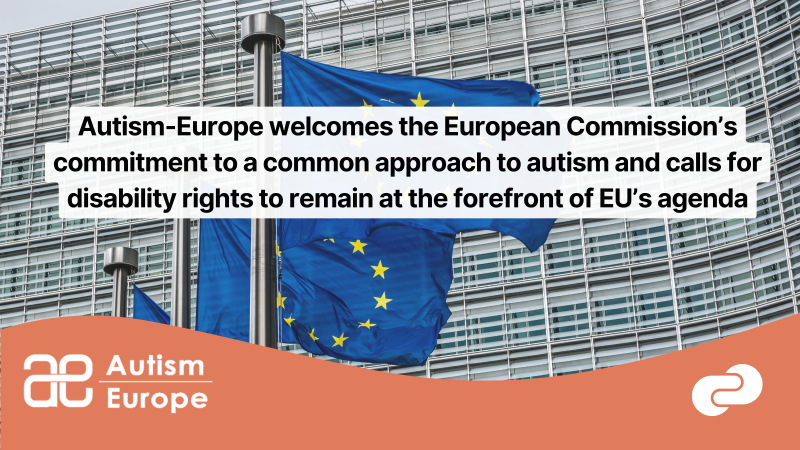
On 17 September 2024, European Commission President Ursula von der Leyen unveiled the European Commissioners designates, their portfolios and mission. We warmly welcome the European Commission’s commitment to work towards a ‘common approach’ to autism at the EU level as stated in the portfolio of the Commissioner for Health. It echoes Autism-Europe longstanding call for a coordinated and strategic response to meet the needs of autistic people at the EU, national and regional level, pursuant to the UN Convention on the Rights of People with Disabilities (UNCRPD). In line with international recommendations, the EU ‘common approach’ should be holistic, rights-based, adequately funded and promote a cross-sectoral policy response to address the pervasive discrimination experienced by autistic people in all fields of life. It is essential that an EU common approach is designed and implemented in full cooperation with representatives of autistic people and their families. Therefore, we look forward to working closely with the European Commission and all interested stakeholders in all future steps. It is also crucial that equality and advancing disability rights remain at the forefront of the European Union’s agenda.
Autism-Europe welcomes that the mission letter to Commissioner-Designate for Health, Olivér Várhely includes a commitment to a ‘common approach’ to autism. It echoes Autism-Europe’s demand to adopt a strategic and holistic approach at the European level to realise the rights of autistic people. We would like to recall that as opposed to cancer, cardiovascular diseases, degenerative illnesses, and non-communicable diseases, autism is not a disease, but a neurodevelopmental disability that is experienced differently by every autistic person. Autism-Europe would like to reaffirm that any common and comprehensive approach to autism should be in line with the UNCRPD and developed in full cooperation with the autism community.
Many international recommendations have highlighted that addressing the needs of autistic people and their families requires a holistic approach, in the health sector and across the whole of society to remove barriers. It is essential to develop or update and implement relevant policies, legislation, and multisectoral plans, supported by sufficient human, financial, and technical resources, to promote ‘cross-cutting principles and approaches of universal access to and coverage by services, human rights, evidence-based practice, life-course approach, multisectoral approach and empowerment of [autistic people] and their families’ (WHO, 2014)¹.
Autism-Europe reiterates the importance of a common and strategic approach to autism at the EU level. The EU should play a leading role in encouraging Member States to adopt cross-sectoral national strategies or action plans to respond to the needs of autistic people, in line with the UNCRPD and international recommendations. It should support the coordination between Member States of relevant policies in the field of autism. The EU should also promote the production of guidelines to harmonise practices across various domains, as well as rights-based, community-based services and inclusion across Europe. The EU should foster the adoption of best practices and support mutual learning between Member States. It should also promote the training of professionals across sectors so that society becomes inclusive of autistic people.
The EU also has an essential role in supporting research and experts in the field of autism. The research agenda must be informed by autistic people and their families’ priorities to improve their quality of life. The EU also has an obligation to promote research conducted through meaningful coproduction with autistic people and their families. This is crucial in ensuring that the research pursued tackles the issues that matter to the community and is informed by autistic people’s lived experiences.
Overall, an EU common approach must meaningfully involve autistic people, their families and representative organisations at all stages, from design to implementation. To address their various areas of concern and improve the lives of autistic people, the EU must keep disability rights at the forefront of the European Commission’s work. We therefore support the European Disability Forum’s request to maintain a standalone portfolio on equality.
¹ World Health Organisation. (2014). (2014). World Health Assembly resolution WHA67.8: Comprehensive and coordinated efforts for the management of autism spectrum disorders